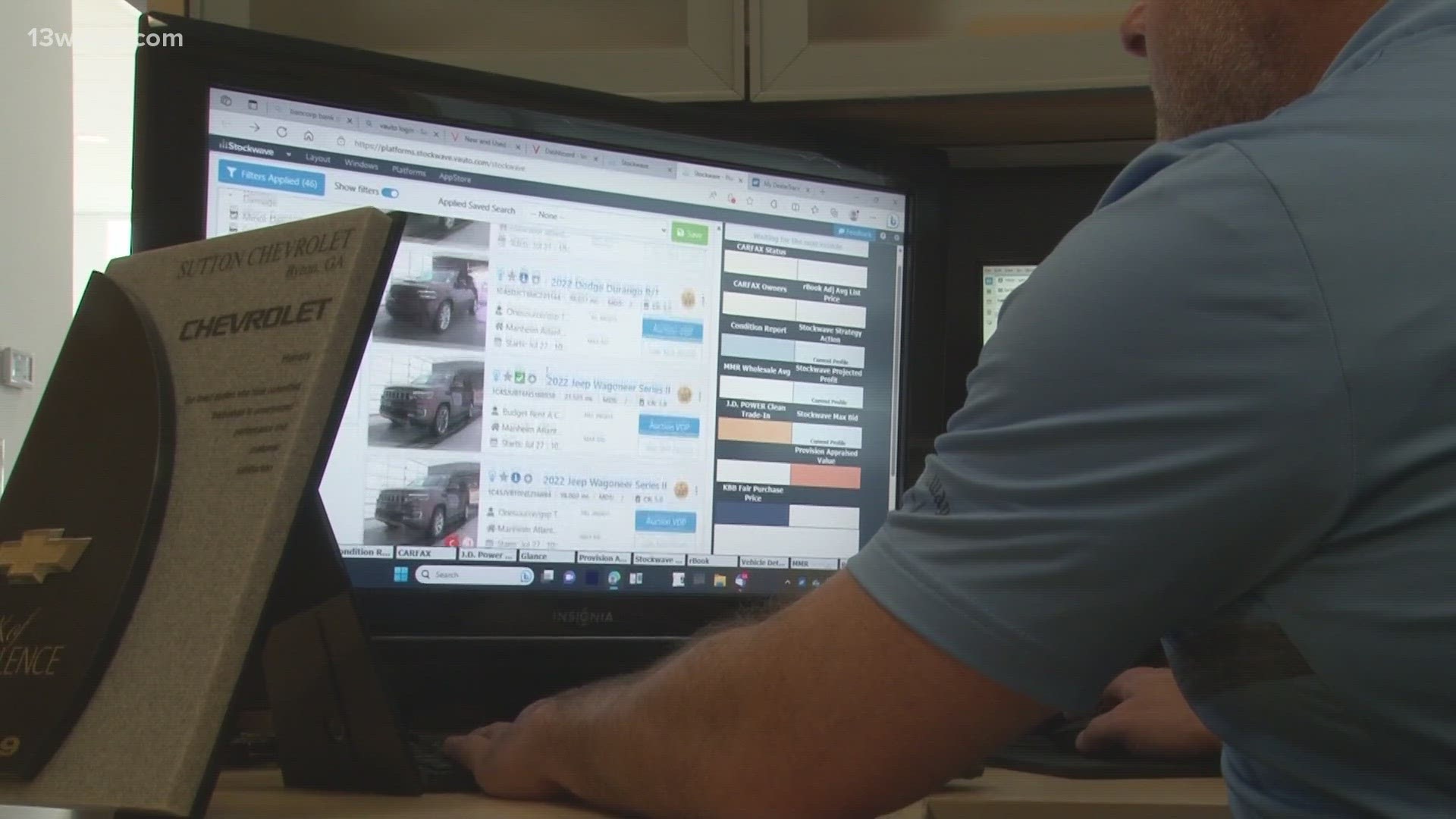BYRON, Ga. — You hear it all the time: "Things have gotten more expensive." So, to help fight inflation, the Federal Reserve, the U.S.'s Central Bank, plans to raise interest rates again.
That could mean higher loan payments on homes and car.
For car buyers, that can make buying a car a little more tricky – and expensive.
“We've used it for plenty of vacations, driving cross country,” Aaron Burnette said.
Burnette was shopping at a car dealership in Byron, and he said his 2016 Chevy Colorado has served him well.
“I've never had many problems," Burnette said. "But I don't want to start having problems and paying for those."
With over 160,000 miles on the car, he says it's time for a change.
“With the interest rates and all that, I don't know how it's gonna go yet,” Burnette said.
The Federal Reserve is raising their interest rates again, which means folks could pay more on loans.
Burnette's dad, Grady, just bought a car from the same dealership.
“I got a pretty good interest rate,” he says. “So, they worked out a good deal. The interest rate is still higher than I wanted it, but payment was where I needed it."
However, Grady says not everyone can afford a larger loan, like blue-collared workers, or younger people, like his son.
“I've heard of people coming up here buying vehicles and having $1,200-1,300 car payments," Grady said. "That's more than most people's rents.”
Burnette says that can be discouraging.
“You need a car to get from back and forth to work," Burnette said. "So it’s very important that someone is able to obtain a vehicle so that they can continue working to keep providing for their family.”
However, Sutton Chevrolet's General Manager Ashley Sutton says it's not hurting their business.
“Supply and demand," he said. "People want cars or need cars and they're still purchasing them.”
Sutton says interest rates are absolutely getting higher.
“For the past two years, it seems like every month or two it’s up, it’s up, it’s up,” Sutton said. “However, there are still good deals to be had.”
He says the market just changes with the interest rate.
“The high price, low-interest rate versus the lower price, higher interest rate– it's still the same payment," Sutton said. "It just comes down to the monthly budget.".
What Sutton means by that is instead of consumers getting a 72-month-long loan, they're extending the payment period to 84 months. So while the loans will take longer – and cost more to pay off over the long run – the monthly payments are easier to manage.
"So, we're evolving to get comfortable payments for consumers," Sutton said.
Plus, for people in need of a car, they also have cars for various price points.
“Where it might not be feasible for everyone to go out and buy a $50,000... We have the $18,900 to $19,900 price points," Sutton said. "It might be a van. It might be a used car with some miles on it. It’s still just applying a consumer with a car that functions to their lifestyle and what they need."
He says car dealerships like his will work to get customers what they need.
“We have over 30 banks that we deal with that specialize with consumers on all facets of life,: Sutton said. "We have banks and programs and we’ll try to fit the best interest rate to the buyer. You think that would slow down sales, but it hasn't. It's produced more inventory for dealers to stock."
Sutton says last year, at their Byron location, they sold about 60 new and used cars every month. Now, he says now they're on track to sell more than that this year.
The Federal Reserve says the interest rate hike is to help lower inflation and to keep unemployment rates low.
Inflation shot up during the pandemic but a new government report shows it's now getting closer to normal levels.
According to the Associated Press, inflation has gone down to 3% for the month of June. While that is still higher than the government's desired 2% inflation rate, it is lower than prices rising 4% in May.
According to AAA, prices at the pump are down more than a dollar in the past year. A trip to the grocery store is still expensive, but prices in June came down from the previous month.
Eggs and milk are seeing significant declines that helped get inflation to 3% last month.

